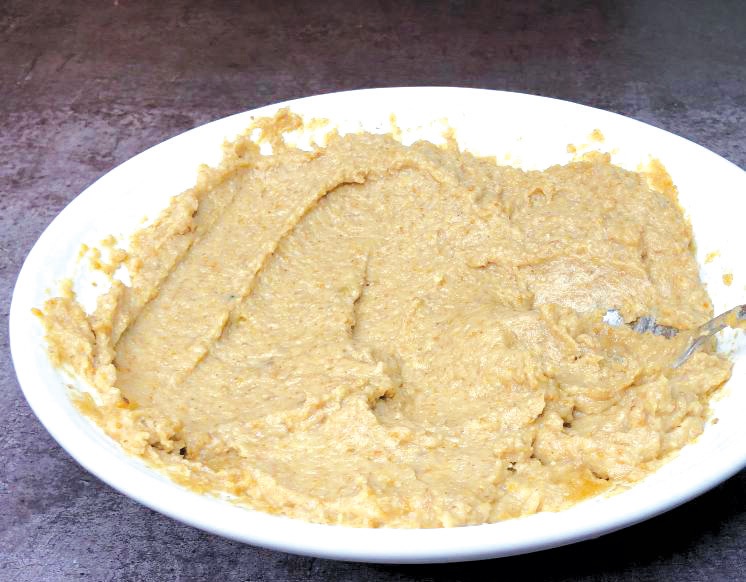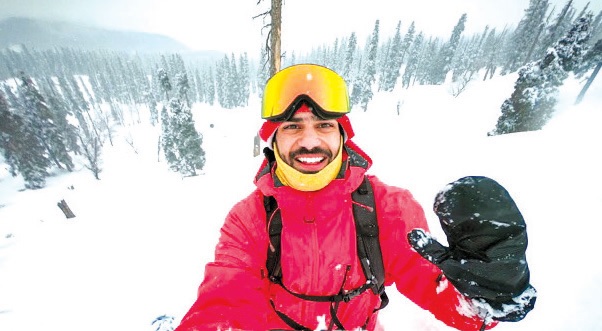As Kashmir witnesses rise in heart attacks overall and particularly in winter months, it leaves people scary and has become talk of the town.
To understand the causes of heart diseases in Kashmir, Rising Kashmir’s Senior Health Correspondent M Peerzada interviews senior Cardiologist,Dr. Hakim Irfan Showkatwho talks about cardiac disorders, measures to curb the disease and the way forward.
Dr. Hakim, MBBS, MD, DNB Cardiology, FACC (USA), FAPSIC (Singapore), AFESC (Europe), M-HRS (USA), is Chairman and Head of Interventional Cardiology, Srinagar Medcity Heart Institute.He has vast experience in diagnosing and managing heart-related problems.
Over the years, Kashmir has witnessed rise in heart attack cases. Why so?
There is a difference between heart attack and sudden cardiac death or arrest. Although heart attack is one of the common causes of sudden cardiac death. We need to differentiate between the two. We have seen sudden deaths quite often over the last few years as well we have seen very increased rates of heart attacks. We need to learn the difference between the two conditions.
Sudden cardiac arrest occurs suddenly and often without warning. It may happen when an electrical malfunction in the heart causes an irregular or regular but dangerous heartbeat (Arrhythmia) or sudden pump failure seen in massive heart attack.
A heart attack occurs when a blocked artery prevents oxygen-rich blood from reaching a section of the heart. If the blocked artery is not reopened quickly, the part of the heart normally nourished by that artery begins to die. The longer a person goes without treatment, the greater would be the damage. And this is one common reason for sudden cardiac death.
What are the signs of a heart attack?
The signs and symptoms of a heart attack are chest pain or tightness, breathlessness, sweating, pain radiating to arm or jaw or epigastric pain, nausea, vomiting, dizziness and tiredness. Do not ignore these red flag symptoms and seek timely medical intervention.
What are the reasons behind heart attacks in Kashmir?
A great Indian population study published recently in the Indian Heart Journal classified the risk factors into two parts: conventional risk factors and specific metabolic risk factors.
The conventional risk factors include hypertension where a patient is diagnosed with high blood pressure reading more than 130/85 mm Hg, diabetes mellitus (sugar), elevated LDL-cholesterol, smoking, sedentary lifestyle, stress and anxiety
The specific metabolic risk factors included in the study were body mass index, waist-hip ratio, low HDL-Cholesterol, Hyper triglyceridemia and elevated HbA1c, Elevated Apo B Protein. Other risk factors include unwanted substance and drug abuse, genetic or family history and male gender.
INTERHEART global study which was held across 52 countries linked nine risk factors with more than 90 percent risk of myocardial infarction (heart attack).
Besides this, a new risk factor that I feel is contributory to the above risk factors and I will call it soft war on heart, health and it is modern-day gadgets.
So when we apply all these factors with our population, we find almost similar risk factors which lead to so many catastrophic events in our population, particularly at a young age.
Which age group is more susceptible to heart attacks?
We have seen heart attacks at the early 20’s age group which was not seen before. We have seen sudden deaths in young age group. But still if you take conventionality into consideration, it’s usually seen in elderly age group like in men above 60-65 years or females after 50-55 years.
But there is a catastrophic shift in age group to the young population and we are seeing quite often people in age group of 30’s or 40’s with massive heart attacks and multi-vessel disease which used to be seen in elderly group earlier.
No age is protected but if we take good care and have good habits since childhood we can protect ourselves from these diseases and at least the productive years will have less catastrophic events.
Is there any specific reason for heart attacks?
I believe the denial mode at young age that I can’t have any disease or any event. Youth usually ignore symptoms and ultimately end event is either a heart attack or unfortunately a sudden cardiac arrest.
We should usually have a regular health check-up after 30’s, at least once a year.Calculate your risk score and accordingly, a health expert can help out what preventive measures we shall adopt or if any medication or any specific investigation is needed.
How can young people save themselves from heart attacks?
Calculate your risk score (KNOW YOUR SCORE) and accordingly a health expert or cardiologist can help out what preventive measures we shall adopt or if any medication or any specific investigation is needed, they can guide you.
Besides this, we need to adopt good habits right from childhood. We should increase outdoor activities which our children have almost abandoned these days.Parents, families need to know the importance of these activities in long run. Sedentary lifestyle is a big risk factor that can be easily taken care of.
Promote fresh seasonal fruits and fresh vegetables irrespective of age group. Obesity has to be taken care of. Hypertension (high BP) can be easily taken care of with lifestyle and medicines. 50 percent people don’t know they have high BP. So a basic simple BP machine or a basic checkup can help out to find the risk and can be treated as well.
Psycho-social factors which include stress in our population (particularly youth) is an important additional risk factor. Multiple reasons unexplained or explained are here to have a deteriorating impact on health and particularly on the heart.
Winter sees more heart attack cases due to severe cold. How can people prevent it?
During the winters, particularly in our valley, when the temperature drops suddenly, the body ends up working doubly hard to regulate heat, and this ends up taking a toll on the heart’s functioning. Yes, a large number of people tend to suffer from heart attacks during winter when the climate outside is cold, particularly in our region.
As per studies, heart attacks, strokes, heart failure, cardiovascular issues, arrhythmias and disorders are on rise during winter due to sudden climatic change as temperature drops unexpectedly.
Even those with pre-existing heart conditions need to be cautious. The chances of heart attacks are high in ones who are already detected with heart problems or having history of heart attack.
Moreover, when the winter starts, one is not able to exercise due to the cold weather outside and that can be bad for your heart. Then during winter air pollution is another worrisome factor that can give a tough time to your heart.
It has been seen that many people suffer heart attacks during snow shoveling. Why so?
It’s extreme exercise in an extreme temperature. So people who regularly exercise they can do snow shoveling, but people who don’t usually have regular exercise shall try to avoid, particularly those people who are at high risk. And if necessary don’t do it in one go, try to adjust small time. Try to do it very slowly and try to take help of others as well.
What are the remedial measures?
Regular medical checkups, leading an active life, cutting down on prolonged hours of sitting, avoid smoking, do regular meditation, know your risk score and having a proper and balanced diet can ensure a healthy heart. However, it may be risky to step out in cold temperature. So, opt for indoor exercises like hall walk, bicycle or simple routines in living room.
People complain of stress, depression due to socio-economic issues. Is it a contributing factor?
As I mentioned INTERHEART global study, PsychoSocial factors due to any reason (financial, domestic, jobs etc.) is a big and important additional risk factor. Research from the European Society of Cardiology has found teens, who struggle with anxiety and depression, could be at a 20 percent increased risk of a heart attack when they reach middle age.
What is the role of smoking in increasing chances of heart attack?
Smoking especially in young people living with stressful life and other risk factors has markedly contributed in heart-related diseases. Smoking is one of the main risk factors in cardiovascular diseases and heart attacks.
Is a sedentary lifestyle a cause behind heart attacks?
Sedentary lifestyle is a big risk factor that can be easily taken care of. A sedentary lifestyle is another risk factor for heart disease and sitting is considered another kind of smoking.
Is drug addiction a contributing factor for heart attacks?
Besides all risk factors we discussed, drug addiction of substances like heroin, amphetamines, marijuana etc. among our youth is one the important contributing factor for young heart attacks and sudden deaths.
What is the role of diet in cardiovascular diseases?
Diet has an important role in cardiovascular diseases. Taking high carbohydrates like we eat rice etc. high fatty food particularly saturated oily food is a risk factor for heart diseases.
But taking good protein, particularly vegetable proteins is advised and it helps to keep heart healthy. Besides fresh fruits, vegetables are good diet for heart and vasculature.
What is the role of cholesterol in heart disease?
While some risk factors can’t be changed, such as family history, some of them can be modified with treatment such as abnormal blood lipid and sugar levels, obesity, smoking, and high blood pressure. Research makes it clear that abnormal blood lipid (fat) levels have a strong correlation with the risk of coronary artery disease, heart attack and cardiac death. Cholesterol plays detrimental role in the pathogenesis of atherosclerosis and cardiovascular diseases.
What should people do in case anyone suffers sudden heart attack?
If someone is having symptoms of a heart attack like chest pain or tightness, breathlessness, profuse sweating, pain radiating to any arm or jaw or epigastrium, nausea, vomiting, dizziness and tiredness,make the person to sit down, rest and try to keep him/her calm. Always tell your family members about symptoms or call immediately anyone nearby if you are alone. Loosen any tight clothing.
Ask if the person is taking any chest pain medicine, such as nitroglycerin (Sorbitrate) for a known heart condition and help them to take it. If pain doesn’t go away promptly with rest or within 3 minutes of taking (Sorbitrate), give one tablet of Disprin and call for emergency medical help or visit immediately to the nearest medical facility possible.
If the person is unconscious and unresponsive, call local emergency number and begin CPR-Cardiopulmonary Resuscitation (Unfortunately we don’t have enough training in masses or general population how to do CPR).
Visit the nearest heart center for proper heart care and management if there is heart attack or heart-related problems. Never ignore your symptoms.








